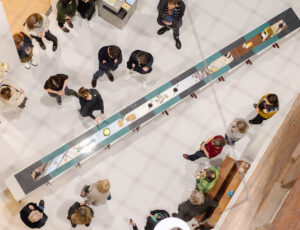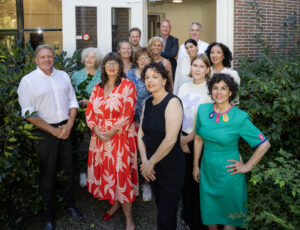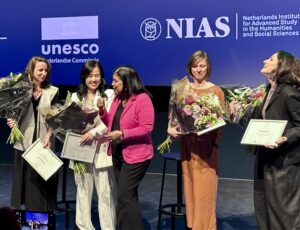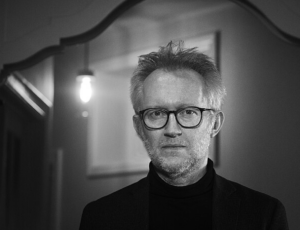About the lecture
During World War II, women’s wartime service at both the battle front and the home front became increasingly important in Germany and other countries. However, the importance of this role for women is often neglected by historiography as well as the public perception. Karen Hagemann tries to explain this paradox.
At the end of World War II, the German Wehrmacht and the civil air force each deployed more than 500.000 women. Furthermore, 400.000 women worked for the Red Cross and an even greater number replaced drafted men in the war economy. How was it possible for mainstream historiography and public memory to have largely ignored women’s war time service until recently, despite their great numbers and their importance? Karen Hagemann tries to explain the discrepancy that while women’s service during World War II was essential to the state and the military, their war time activities have overall not received much attention in historiography, the public perception and the media up to today. Hagemann will be introduced by Christina Morina, lecturer at the German Studies Institute Amsterdam.
About the speaker
Karen Hagemann is the James G. Kenan Distinguished Professor of History at the University of North Carolina at Chapel Hill. She has published widely in the field of German and European history of the 19th and 20th century and gender history. In 2015 she published her new monograph Revisiting Prussia’s Wars Against Napoleon: History, Culture, Memory (Cambridge University Press). Currently she is preparing as the general editor the Oxford Handbook on Gender, War and the Western World since 1600 (Oxford University Press) and a monograph on Gender, War and Memory: Women and the Military in the Two World Wars.
Amsterdam German Studies Lectures
The Amsterdam German Studies Lectures are an intitiative of the Duitsland Institute Amsterdam (DIA) and the Goethe Institut Niederlände and are dedicated to recently conducted research on contemporary German and European history. Four times a year, a well-established international academic is invited to present their research to a wider Dutch public.



